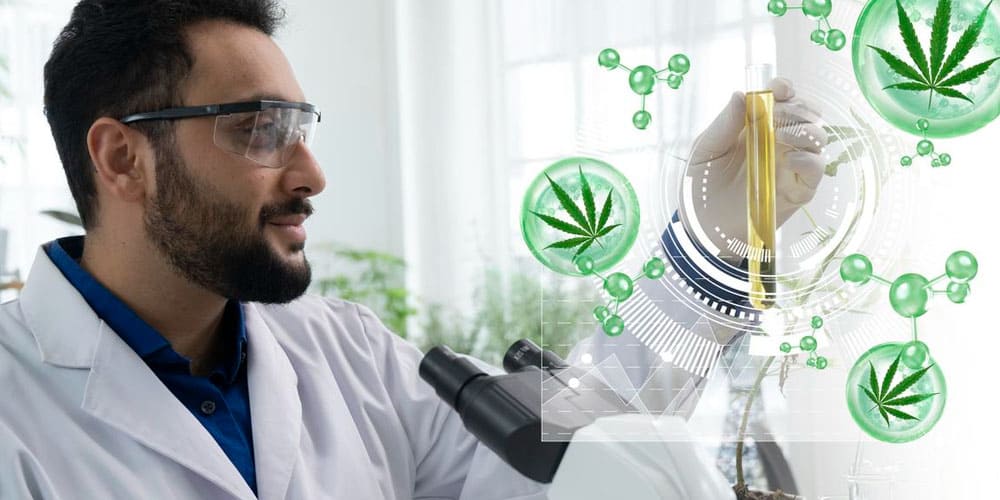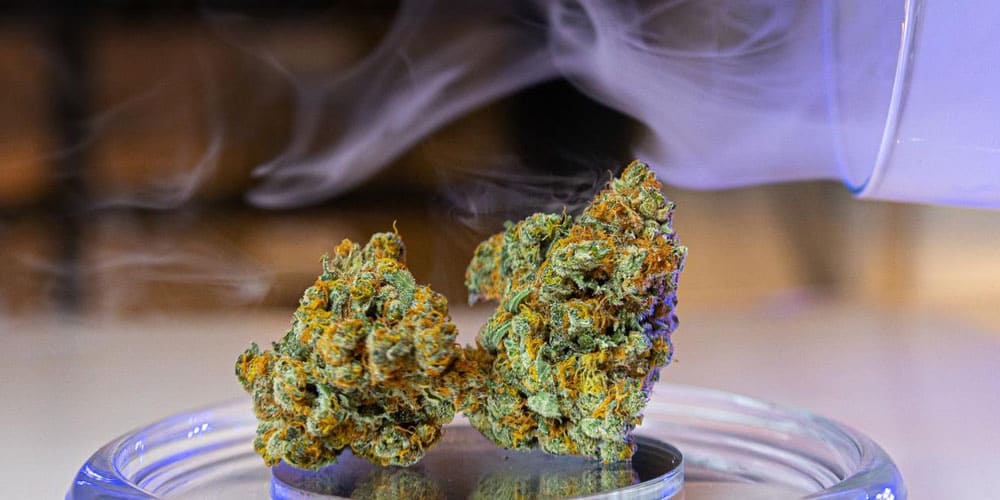Why Some First-Time Cannabis Users Don’t Get High

In instances where cannabis users don’t get high, especially among first-timers, the interaction of cannabis with the human body presents a curious mystery. Cannabis, long a subject of cultural, medicinal, and legal discussion, contains peculiar properties in its leaves that affect people differently. This variation in response, particularly the lack of a psychoactive experience in some new users, has piqued the interest of both the scientific community and general users, leading to a deeper investigation into how cannabis works within the human body.
- Cannabis Secondhand Smoke: Can You Get High?
- How To Avoid Munchies While High
- What Happens When You Sleeping High: Exploring the Effects
The Endocannabinoid System: A Key Player

The human body possesses a complex system known as the endocannabinoid system (ECS), which is integral to regulating various physiological processes. These processes include mood regulation, memory, appetite control, and the sensation of pain. The ECS is a widespread network within the human body, playing a crucial role in maintaining internal balance and function. Understanding the ECS is key to comprehending how various substances, particularly those found in cannabis, affect the human body.
The ECS is primarily made up of cannabinoid receptors that are distributed throughout the body. These receptors are found in high concentrations in the brain and the nervous system, making them pivotal in the transmission and modulation of various signals within the body. The two main types of cannabinoid receptors are CB1 and CB2, each playing distinct roles in the ECS. The presence and functioning of these receptors explain the wide-ranging effects of cannabinoids on the human body.
When THC, the psychoactive compound in cannabis, is introduced into the body, it primarily interacts with the ECS by binding to CB1 receptors located in the brain. This interaction is what leads to many of the well-known effects of cannabis, such as altered perception and mood changes. However, the impact of THC on these receptors, and consequently on the body, can vary significantly from one individual to another. This variation is due to factors like genetics, tolerance levels, and the individual’s unique ECS composition, all of which influence their overall response to cannabis.
Delve into the fruity bliss of Watermelon Zkittlez 2 original mini joints, each weighing 0.5 grams. This indica-dominant hybrid offers a sweet, relaxing escape. Its aroma blends juicy watermelon with candy-like sweetness, evoking the beloved Zkittlez candy, for a delightful smoking experience.
Individual Differences in Metabolism

A crucial factor impacting the effect of cannabis on individuals is the variability in metabolism, particularly in how THC is processed in the body. The liver is the primary site for the metabolism of THC, and genetic variations among individuals can lead to significant differences in the way THC is metabolized. These genetic factors can influence the intensity and duration of cannabis’s psychoactive effects, contributing to the diversity of experiences among users. For some, these genetic differences may result in a more rapid or efficient metabolism of THC, which can affect the overall experience.
In certain individuals, the efficiency of THC metabolism can be so pronounced that they experience minimal or even nonexistent psychoactive effects, especially during their initial encounters with cannabis. This phenomenon is especially notable in first-time users, where the expected effects might be significantly less pronounced than in regular users. This difference in response can be attributed to how their bodies process and break down THC, which is influenced by genetic factors. Understanding this variability is key to appreciating the complex and individualized nature of cannabis experiences.
Tolerance and Sensitivity Variations

Another significant factor influencing the effects of cannabis is the natural variation in individual tolerance and sensitivity to THC. This variation can be attributed to genetic predispositions or prior exposure to substances similar to cannabis. Such exposure could come from certain foods or supplements that might contain compounds interacting with the same bodily systems as THC. As a result, some individuals may have a naturally higher tolerance, meaning they require larger amounts of cannabis to experience its psychoactive effects.
This variation in tolerance levels is a critical element in understanding the diverse reactions to cannabis use among different individuals. For first-time users, this inherent tolerance can significantly impact their initial experience with cannabis. While some may feel profound effects with minimal exposure due to low tolerance, others might not experience a noticeable high, even with standard doses of cannabis. This lack of effect could be perplexing for new users expecting immediate and noticeable psychoactive effects.
It’s important to consider these natural variations when assessing the impact of cannabis, especially in first-time users, as they can lead to a wide range of experiences and responses to the substance. Understanding these individual differences is key to comprehending the complex nature of cannabis and its interaction with the human body.
Explore the delightful essence of our Wild Berry Mix 10 Cannabis-Infused Gummies. With 10 all-natural, non-GMO, vegan, fat-free, and gluten-free gummies, each 3.5g piece contains 10mg THC, summing up to 100mg per pack. They offer a euphoric and sociable experience, perfect for those seeking joy and relaxation in a mindful, berry-infused treat.
The Role of Expectation and Experience

Psychological factors play a substantial role in shaping the experience of cannabis users, particularly for those trying it for the first time. Expectations and prior experiences with psychoactive substances greatly influence how one perceives and reacts to cannabis. Individuals who have never encountered psychoactive substances might have different expectations about the effects of cannabis, which can significantly alter their experience. The psychological preparedness for and anticipation of the cannabis high can be as impactful as the physiological effects, molding the user’s overall experience.
The placebo effect is another psychological phenomenon that can influence the experience of cannabis users. This effect occurs when an individual perceives benefits or effects from a substance, even when it is non-active, purely based on their expectations. In the context of cannabis use, if first-time users strongly anticipate certain effects, they might perceive them even in the absence of a strong psychoactive response. This interplay between expectation and perception underscores the complexity of cannabis experiences, where psychological factors can be just as influential as the chemical properties of the substance itself.
Inhalation Technique and Absorption

The method of consumption and the technique of inhalation are crucial in determining the effectiveness of THC absorption, particularly for inexperienced cannabis users. Many new users may not be familiar with the proper technique of deeply inhaling or holding the smoke in their lungs for a sufficient duration, which is essential for the effective absorption of THC. THC, when smoked or vaped, is primarily absorbed through the lungs, and therefore, improper or shallow inhalation can significantly diminish the potency of the user’s experience.
This often results in a less intense or entirely absent high, especially in those who are trying cannabis for the first time and have yet to master the inhalation technique.
Experience the exhilaration of Sour Diesel Sauce Cartridge. Expertly crafted with a ceramic heating coil for optimal performance, each puff is a leap into bliss. Featuring an Airflow Adjuster for personalized inhalation, the fast-acting cerebral high of Sour Diesel invigorates and inspires creativity.















